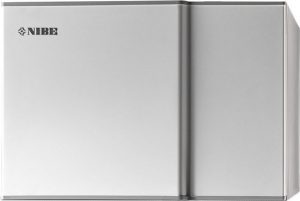Heat pump boiler
The heat pump boiler is a special ventilation heat pump. It too heats by means of ambient or ventilation air, but with this boiler you do not heat rooms, but tap or sanitary water. The heat pump boiler is a special type of heat pump boiler.
The advantage with a heat pump boiler is that heated ventilation air, which normally leaves the house again, is used to heat tap water. This only works in the situation that you have no WTW installation in the house.
The heat from the ventilation air can only be extracted once. The heat from the outside air is first used to heat the water, supplemented with electricity to further heat the water until the tap water has reached the desired temperature.
When to choose a heat pump boiler?
- When you need a lot of hot water: The more hot water you need, the more you can save with this water heater. However, this requires a large cylinder and you must have the physical space to place it.
- Existing house and / or no sense in major works: The installation of a heat pump is very simple and cheaper than a solar water heater. The device works on electricity and you simply have to plug it into the wall socket.
- If you have more solar panels than you use electricity: Solar panels provide ‘free’ electricity. You then convert this green power into hot water.
Payback time and what does it actually cost?

Why consider a heat pump boiler?
A heat pump boiler is more efficient than an electric boiler. At best, this boiler is 3 times more efficient than its electric counterpart. The efficiency is also determined by the temperature of the ventilation air and the desired temperature of the tap water.
Obviously, the combination of a fairly warm ventilation air and a not too high tap water temperature is the most advantageous. The purchase price of this boiler is higher than the electric boiler, but in time you will earn back the difference. Moreover, this form of heating is much more environmentally friendly. For a family of 4, you should expect an investment of around € 3,000 for the water heater including installation costs.
For companies it is important that an investment in this boiler falls under the EIA scheme. This means that in 2021 45% of the investment may be charged to the profit. Instead of the EIA scheme you can also use the ISDE subsidy. See the site of the RVO.
More information can be found on the website of Milieucentraal.
When which water heater?
Solar water heater
A solar water heater is a water heater that is usually placed on your roof and converts solar heat in a very environmentally friendly way into heated water for your tap water or space heating through the central heating.
Usually with post-heating because in the cold winter months in the Netherlands there is not enough sun while the heat demand is at its maximum. The reasons for choosing a heat pump boiler were outlined above.
A solar water heater is better suited to situations where there is little need for hot water, such as in small households. The disadvantage of a solar water heater is that, especially in the winter months, it does not provide enough hot water and therefore needs to be reheated considerably. Also, you only need to have a roof with orientation on the south or south-west. It is an advantage that you can also use the solar water heater in combination with an existing central heating boiler.
Electric water heater
The advantage of an electric water heater is that you only need an electrical outlet and a water pipe. No gas supply or flue. With a simple knob you determine the water temperature. Ideal in places without a gas line.
The disadvantage is that most boilers have a limited amount of water and once you have used up that amount, it takes some time before new hot water comes out of the boiler. The association with manually doing the dishes now spontaneously occurs to me. By the 2nd tub, there was a mandatory break.